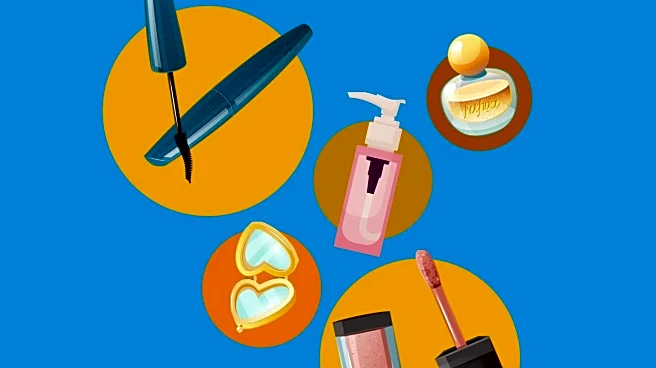What's Happening?
Teen Vogue has published an article addressing the issue of misinformation in beauty influencing, particularly targeting young audiences. The article highlights how influencers and beauty brands often
promote products that reinforce unattainable beauty standards, impacting self-image negatively. It discusses the lack of transparency in beauty marketing, where influencers may use filters or undergo procedures without disclosure, misleading followers about product effectiveness. The Federal Trade Commission advises influencers to disclose any relationships with brands and ensure claims are backed by proof. The article features Paloma Sanchez, a content creator who advocates for self-acceptance and transparency in beauty practices.
Why It's Important?
The article sheds light on the ethical concerns surrounding beauty marketing, particularly on social media platforms frequented by teens. Misinformation can lead to unrealistic expectations and mental health issues, as young people may feel inadequate when products fail to deliver promised results. The lack of transparency in beauty influencing undermines consumer trust and can result in wasted money on ineffective products. The article calls for greater accountability among influencers and brands, emphasizing the need for honest communication and adherence to consumer protection laws. It highlights the importance of promoting self-acceptance and realistic beauty standards to support positive self-image.
What's Next?
The article may prompt discussions on the regulation of beauty marketing on social media, potentially leading to stricter enforcement of disclosure requirements. Influencers and brands may face increased scrutiny from consumers and regulatory bodies, encouraging more transparent practices. The conversation could lead to a shift in beauty standards, with a focus on authenticity and self-acceptance. Advocacy groups may push for educational initiatives to help young people critically evaluate beauty claims and make informed choices. The article may inspire other content creators to promote transparency and challenge misleading beauty narratives.
Beyond the Headlines
The issue of beauty misinformation reflects broader societal challenges related to media influence and consumer culture. It raises questions about the ethical responsibilities of influencers and brands in shaping public perceptions of beauty. The article highlights the need for media literacy education to empower young people to navigate digital spaces critically. It underscores the importance of fostering a culture of authenticity and self-acceptance, challenging the pervasive influence of unrealistic beauty standards. The conversation may contribute to a larger movement towards ethical marketing practices and consumer protection in the beauty industry.









